Crypto scam
Andrew Tate is Poison — Crypto Must Stand Up for Coffeezilla
Published
1 month agoon
By
admin
Andrew Tate’s response to Coffeezilla shows he’s thin-skinned and doesn’t care about the people who have invested in his tokens.
On-chain sleuth Coffeezilla has become a thorn in the side of high-profile influencers shilling coins to their millions of fans.
One of his best-known scalps is Logan Paul, who was ripped to shreds over his embattled and now-abandoned project CryptoZoo.
Coffeezilla’s also gone toe-to-toe with the likes of Sam Bankman-Fried as he vies to uncover scams to his 3.77 million subscribers on YouTube.
But now, the investigator is facing an almighty backlash about a deep dive that hasn’t even been released yet — and it relates to a number of coins that have been endorsed by Andrew Tate.
On Wednesday, Coffeezilla shared a DM that he had sent to Tate, asking whether he had been paid to promote cryptocurrencies, including ROOST and DADDY.

The message also pointed out that this is completely at odds with videos that Tate had released on X earlier this year, where he was topless and appeared to have substantially more hair.
I DO NOT ENDORSE SHITCOINS.
I’m not a scammer like every other “influencer”
I don’t need to rob my fans.
I DO NOT HAVE ANYTHING TO DO WITH ANY CRYPTO. pic.twitter.com/tlLQ8Iunz3
— Andrew Tate (@Cobratate) May 17, 2023
Coffeezilla is following a crucial journalistic principle known as the “right of reply.” If you’re going to make allegations against someone, they must have the ability to respond before publication.
But instead of answering the legitimate questions put forward — which would be of interest to his many acolytes — Tate chose to go down the homophobic route.
By the looks of things, this has now unleashed a huge can of worms. Coffeezilla shared a screenshot that shows how his inbox has been bombarded with slurs.
Why? Because Tate reposted an anonymous account that exposed Coffeezilla’s email address, with the misogynist telling his followers: “Email him and call him gay.”
Undeterred, the investigator has insisted that he still wants a reply to his questions — and it’s likely that, if the clock runs out, Coffeezilla’s video will go live anyway without a comment.
The YouTuber also posted a comical mash-up that showed Tate chomping on a cigar because it looks cool, declaring that he respected Coffeezilla, cutting to another clip where he says:
“Coffeezilla is a b****. I don’t give a f*** about your video, I don’t respect your journalism.”
Given how wide-eyed Tate is as he jabs his finger toward the camera, you could suggest that all of this scrutiny is bothering the sham entrepreneur more than he lets on.
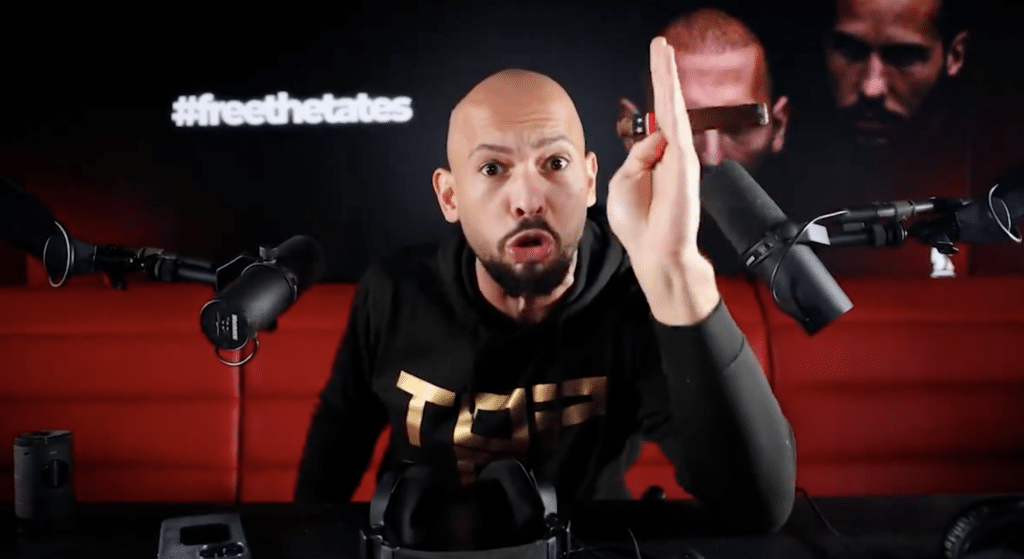
What is Coffeezilla investigating?
Coffeezilla, who married his high school girlfriend in 2017, has so far remained tight-lipped about the nature of the allegations against Andrew Tate and his brother Tristan.
But it seems a core part of the focus in his upcoming investigation will surround the $DADDY token, which has fallen precipitously in value since launch and has never recovered.
An all-time high of $0.2925 was set in mid-June when CoinMarketCap started tracking the altcoin — and at the time of writing, it’s down by more than 48%.
Tate’s full rebuttal video is something of a parody — honestly, some of the lines in there are pure comedy, especially how they are delivered. He tells Coffeezilla:
“I guarantee I drink more coffee than you — meaning you’re a fraud to begin with. You’re doing this little breakdown, this investigation, you just emailed me in a homosexual tone.”
To be honest, I don’t even know where to start with this. You can’t have “Coffee” in your handle unless you prove you’ve got a higher caffeine tolerance than Andrew Tate? Daring to scrutinize a man who has more legal troubles than Lamborghinis reveals his sexual preference?
Even before knowing the exact nature of Coffeezilla’s investigation, we have an insight into how thin-skilled Andrew Tate really is — and ultimately, how little he cares for his community, as well as those who have invested in his tokens.
Tate’s toxic masculinity has preyed on the insecurities of disenfranchised young men around the world while his foray into crypto has dived into their wallets — creating a false illusion that they, too, will experience extreme wealth one day.
When you think about it, Tate’s branding and messaging are reminiscent of an era that most of the crypto world has been trying to move away from, when the ICO boom of 2017 was full of wild excesses along with never-ending images of fast cars and bundles of cash.
In this battle, the crypto community needs to rally behind Coffeezilla — a man who has taken great risks to expose bad actors in the space and stand up for those who have lost their life savings to some of the industry’s most audacious scams. He, among others, serves as crypto’s immune system, with every investigation slowly chiseling away at the sector’s “Wild West” image and deterring opportunistic thieves planning to swindle unsuspecting victims.
The crypto community needs to distance itself from narcissists like Tate, who use homophobia as a weapon to deflect against their own shortcomings. Coffeezilla’s sexual orientation has zero relevance to the work he performs, and it’s shameful to think otherwise. Digital assets won’t ever achieve mass adoption if the influencers within this space denigrate innocent people who are doing nothing wrong.
And last but not least, the crypto community needs to realize that Andrew Tate and his coins represent everything that this innovative sector is not: hateful, harmful and dishonest. Engaging with him only drags down the rest of the industry.
Crypto is all about the future. Tate’s worldview belongs to the past.
Source link
You may like


Donald Trump Proposed Crypto Advisory Council To Set Up Strategic Bitcoin Reserve


Want Greater Bitcoin Adoption? Engage With Your Government.
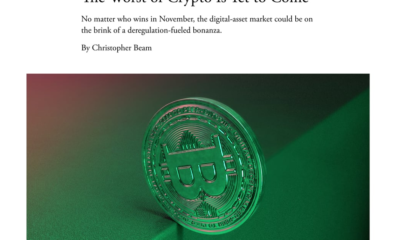

Why the Media Loves the Worst of Crypto


HashCats prepares for Token Generation Event after completing mining season


Gary Gensler To Step Down As US SEC Chair In January
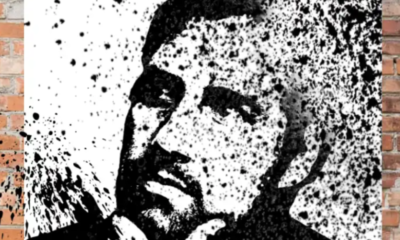

The Chart That Shows Bitcoin’s Bull Run Won’t Stop at $100,000
Crypto scam
Crypto traders doxx 13 year-old-boy who rugged two pump.fun tokens
Published
1 day agoon
November 20, 2024By
admin
A 13-year-old boy got doxxed by crypto traders after pulling the rug on a pump.fun token he named Gen Z Quant. Traders doxxed his whole family and turned them into pump.fun tokens.
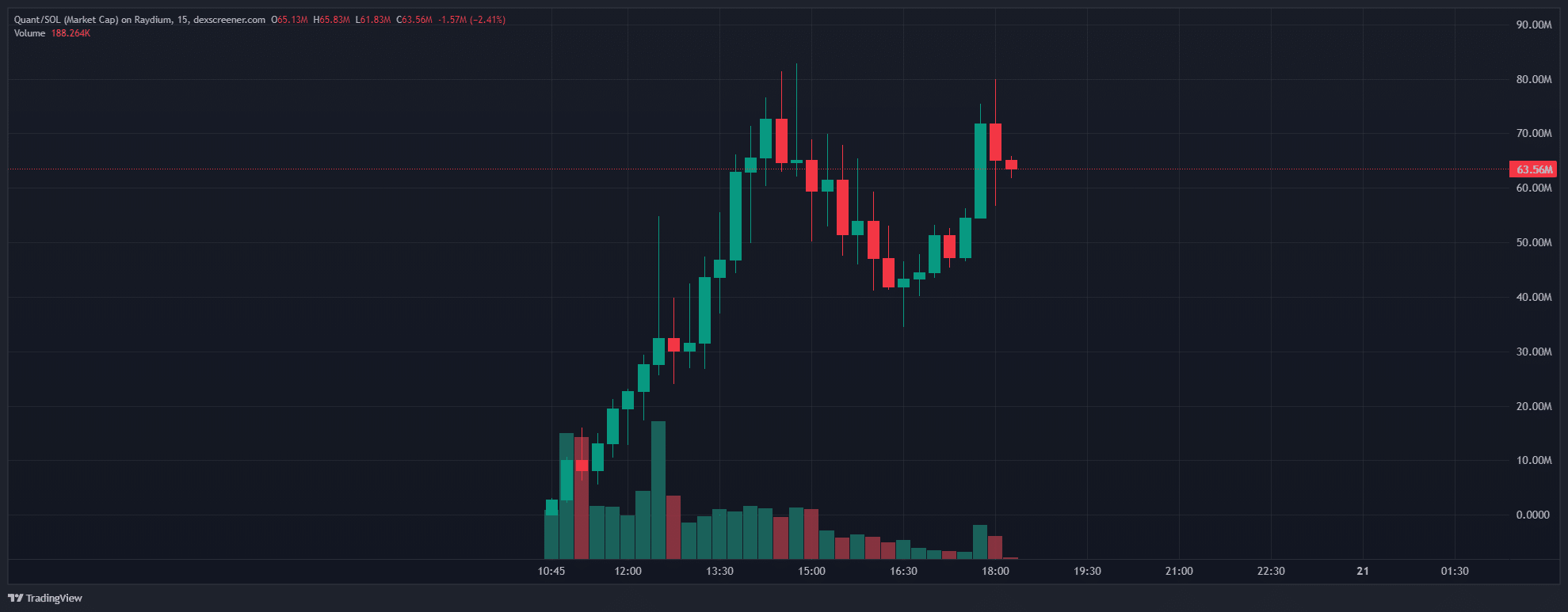
A 13-year-old boy has been caught in the middle of one of the most random rug-pulls the crypto community has ever witnessed. On Nov. 20, the unnamed boy launched a token on pump.fun under the ticker QUANT and watched as the price go up by 260% mere minutes after launching.
Not even an hour later, the boy dumps all his QUANT tokens, effectively pulling the rug from under traders who had bought the token minutes before. The boy made a profit of $30,000 by inflating the price and selling all his tokens.
As if that was not enough, he went online and flipped the middle finger at the traders who had been burned by QUANT’s rug-pull. He then went on to do the same thing by launching another token of the same name, which he later dumped for another $12,000 in profit.
Not long after, more experienced traders took over and brought the token’s market cap up to $70 million. The Gen Z Quant token he launched as an elaborate troll is currently trading at $0.05571 according to DEX Screener. It has soared to nearly 50% in the past six hours but is gradually going down hill by 13% in the past hour.
Although the boy has managed to turn his initial $30,000 token into a $2.4 million token, the crypto community was not going to let his misdemeanor slide.
Traders began doxxing the boy’s family and locating his school, tracking their social media accounts and complaining about the funds they lost thanks to the boy’s rug pull. Soon enough, developers began launching new pump.fun tokens named after the boy’s family members with their profile pictures revealed to accompany them.
Pump.fun tokens with the ticker QUANT DAD, QUANT SIS and QUANT MOM have already been circulating the markets, as well as tokens accompanied by a picture of the boy’s whole family and their pet dog with the ticker CABAL.
“Kid put his bloodline on the line,” one user pointed out.
“Then the community cto’d it to $135 million. He could’ve had 1.2 million. Then they doxxed his name, address and sschool. The community is roothless,” said a user on X.
One trader dubbed the boy “the future of finance,” while another reminded the community that this boy represents a messed up generation that has been “optimized to do that to people.”
Source link
Crypto scam
Scammers Decided Not to Operate in TON. Is this good?
Published
4 weeks agoon
October 23, 2024By
admin
Crypto scammers using malware to steal digital assets refused to attack TON users. However, things are not so clear-cut.
Scam Sniffer experts noted that the operators of a drainer popular among scammers rejected the TON network.
In a message published in an unspecified Telegram channel, the drainer creators announced its closure in the TON ecosystem. The main reason is the lack of crypto whales:
The malicious application’s developers are now moving to the Bitcoin blockchain, which will probably create many more opportunities for scammers to rob.
“What’s next? If you enjoyed draining on the TON network you will definitely live draining Bitcoins.”
One of the main reasons for the lack of whales is the vast number of airdrops on TON. They make fraud not the most profitable way to earn money: phishing schemes on The Open Network bring little profit, reducing scammers’ interest.
However, SlowMist founder Yu Xian said that such an assessment of whale activity in TON may need to be more complex. In his opinion, the drainer team may need to pay more attention to the potential of the TON blockchain.
“A phishing group on TON is ready to shut down, arguing that they believe TON has no whale players and is a small community. They have already turned to the Bitcoin ecosystem… Too realistic. Or maybe this gang isn’t smart enough.”
Yu Xian, SlowMist founder
How the TON blockchain became a new haven for scammers
TON has become one of the most successful stories of 2024, with the value of its token growing by more than 100% since the beginning of the year. In addition, integrating TON with the Telegram messenger, which has more than 900 million users, strengthened its position as a potential residence for the widespread distribution of cryptocurrency.
Scammers’ activity in TON arose against the backdrop of the rapid growth of the blockchain. Due to increased interest and investment in TON, fraudulent activity has gained momentum since at least November 2023.
The interest is mainly driven by the increasing popularity of mini-apps. They successfully exploited the popularity of projects such as Notcoin and Hamster Kombat. Typically, the attackers used the popularity of tap-to-earn games.
For example, Kaspersky Lab noted that scammers offered to earn Toncoin (TON) using bots and referral links. To make it easier to deceive users, the scammers recorded a video with instructions, created text manuals, and provided them with many explanatory screenshots.
Tonkeeper explained that the scammers rely on current trends in the ecosystem. For example, they created a token against the backdrop of the excitement caused by the launch of Hamster Kombat. Therefore, the names and tickers of fake tokens are often consonant with the names of popular projects.
“Usually, scammers create tokens before the official listing of the real coin. Check information about the token launch in official sources.”
Tonkeeper team
Experts from BlockAid also noted that attackers used leak tools previously used on the Ethereum and Solana platforms. In September, more than 300 malicious decentralized applications (dapps) were launched on TON, highlighting the growing threats.
What is the most popular blockchain for fraud?
Despite the growing popularity of TON, the blockchain has yet to boast of popularity among fraudsters, according to data from the REKT Database.
Thus, Ethereum became the leader in phishing attacks last year, suffering losses of over $65 million, 91% of the total loss. Arbitrum also suffered losses of $5.2 million, while Bitcoin lost $768,000.
In terms of exploits, Ethereum was also the most affected blockchain in this category, with losses of $482.7 million, while Binance was the most vulnerable to exit scams, with a loss of $74.5 million.
Regarding attackers’ move to the Bitcoin blockchain, CertiK, another well-known company in the blockchain security field, emphasized that scammers are becoming increasingly interested in Bitcoin due to its high transaction volumes, large user base, and significant total value locked (TVL).
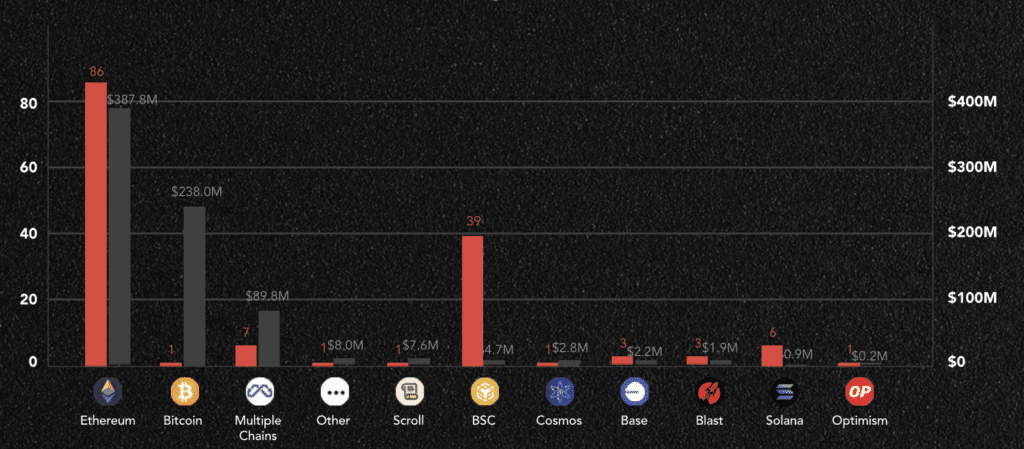
Phishing attacks on Bitcoin have increased significantly in recent months. One of the most notable incidents was the attack on a Bitcoin whale that resulted in $238 million in losses, further highlighting the growing risks in this area.
Source link
blockchain games
Did Jump Trading Just ‘Fracture’ the Trust of the Crypto industry?
Published
1 month agoon
October 18, 2024By
admin

Is Jump Trading responsible for the collapse of DIO tokens? How did a market maker supposedly take advantage of a partnership with Fracture Labs to pocket millions and leave chaos behind?
Jump Trading, a prominent name in the crypto trading space, is now entangled in a legal battle. Fracture Labs, the creators of the blockchain-based game Decimated, has sued Jump, accusing the firm of executing a “pump and dump” scheme.
At the heart of the lawsuit, Fracture Labs claims Jump Trading exploited its role as a market maker to inflate the value of its DIO gaming token artificially. Once the price peaked, Jump allegedly sold off its holdings, triggering a sharp price decline.
How does a collaboration designed to promote a token’s success devolve into allegations of fraud and manipulation? Let’s break down the sequence of events leading up to the lawsuit and why it has drawn so much attention.
What happened between Jump Trading and Fracture Labs?
On Oct. 15, Fracture Labs filed a lawsuit against Jump Trading in an Illinois district court, accusing the firm of breaching their agreement and manipulating the DIO token.
To fully grasp the situation, we need to revisit 2021. During this time, Fracture Labs had just launched its DIO token to support its blockchain game, Decimated, and entered a partnership with Jump Trading to facilitate the token’s market introduction.
Jump Trading agreed to serve as a market maker—a role that involves providing liquidity to ensure smooth trading and price stability for the token. Market makers typically buy and sell assets to maintain balanced trading conditions, especially for newly launched tokens like DIO.
As part of the arrangement, Fracture Labs loaned 10 million DIO tokens to Jump, valued at approximately $500,000 at the time. The expectation was that Jump would assist in the token’s debut on the crypto exchange Huobi (HT), now known as HTX.
In addition to the loaned tokens, Fracture Labs sent 6 million more tokens directly to HTX, worth about $300,000, as part of its broader marketing campaign. With these preparations in place, everything seemed primed for a successful launch.
HTX played its part by heavily promoting the DIO token and leveraging influencers and social media campaigns to boost its visibility.
The strategy appeared successful — perhaps overly so. The price of DIO surged to $0.98, dramatically raising the value of Jump’s 10 million DIO holdings from $500,000 to a staggering $9.8 million in a short period.
For Jump Trading, this price surge represented an enormous windfall. The 10 million tokens they had borrowed were suddenly worth nearly $10 million. However, what followed is where the allegations of manipulation arise.
Fracture Labs alleges that Jump Trading saw the soaring price as a profit-making opportunity. Instead of continuing to provide liquidity and stabilize the token, Jump allegedly began selling off its DIO holdings in large quantities.
This mass sell-off caused a steep drop in DIO’s value, plummeting from nearly a dollar to just $0.005—a dramatic collapse that decimated the token’s worth.
The lawsuit further claims that after selling the tokens at their peak, Jump repurchased the devalued DIO tokens for just $53,000. This allowed Jump to return the 10 million tokens it had borrowed, fulfilling its obligation to Fracture Labs, all while pocketing millions in profit.
Breach of trust and legal fallout
The collapse of DIO’s price had devastating consequences for Fracture Labs. According to the lawsuit, the sudden and severe drop in value crippled the company’s ability to attract new investors or sustain interest in the DIO token.
Adding to their troubles, Fracture Labs had deposited 1.5 million Tether (USDT) into an HTX holding account as a safeguard against accusations of market manipulation. This deposit was intended to reassure the market that Fracture Labs would not manipulate DIO’s price during its first 180 days of trading.
However, due to the extreme price volatility that Fracture Labs claims were triggered by Jump Trading’s actions, HTX allegedly refused to return most of the USDT deposit. This left Fracture Labs with not only a devalued token but also a substantial financial loss from their USDT deposit.
Fracture Labs is now accusing Jump Trading of fraud, civil conspiracy, breach of contract, and breach of fiduciary duty. They assert that Jump Trading abused the trust placed in them as a market maker, using their privileged position to manipulate DIO’s price for personal gain.
The lawsuit seeks damages, the return of the profits that Jump allegedly made from the scheme, and a jury trial to settle the matter. Interestingly, HTX is not named as a defendant in the lawsuit.
Jump Trading’s troubled past
The controversy surrounding Jump Trading is not new, as the firm has been under regulatory scrutiny multiple times in recent years.
In fact, both Jump Trading and its crypto arm, Jump Crypto, have faced several legal and regulatory challenges, raising concerns about their operations in the crypto market.
One of the more prominent cases surfaced in November 2023, when Jump Crypto’s involvement came under the spotlight in the U.S. Securities and Exchange Commission’s lawsuit against Terraform Labs.
The lawsuit, originally filed in February 2023, alleged that Terraform Labs and its former CEO, Do Kwon, engaged in fraudulent activities and sold unregistered securities, focusing on their failed algorithmic stablecoin, TerraUSD (UST).
The collapse of UST in May 2022 led to billions of dollars in losses and significant turmoil across the broader crypto market.
According to the SEC, when UST first began losing its dollar peg in 2021, Terraform Labs collaborated with Jump Crypto to artificially boost the stablecoin’s value.
The regulator claimed that Jump Crypto purchased large amounts of UST to restore its price, temporarily stabilizing the asset. However, when UST experienced its final collapse in May 2022, no similar intervention took place.
Terraform Labs, however, denied these claims, stating that Jump Crypto’s actions had no bearing on UST’s earlier recovery.
In April 2024, Terraform Labs reached a settlement with the SEC, agreeing to pay $4.47 billion after a jury found them liable for defrauding investors. The settlement included $420 million in civil fines, $3.6 billion in disgorgement, and $467 million in interest.
Although Jump Crypto was linked to UST’s earlier recovery efforts, it was neither charged nor formally implicated in any wrongdoing as part of the settlement.
By June 2024, Jump Crypto found itself under investigation by another U.S. regulatory body—the Commodity Futures Trading Commission. The CFTC launched a probe into Jump Crypto, reportedly scrutinizing its trading and investment activities within the crypto sector. Kanav Kariya, the firm’s former president, resigned just days later.
While the specifics of the investigation remain confidential, and no official allegations have been made, the probe reflects a broader push by U.S. regulators, including the CFTC, to intensify their enforcement actions against crypto firms throughout 2023 and 2024.
What to expect next?
If Fracture Labs succeeds in proving Jump Trading’s misconduct, it could trigger a major shift across the crypto industry, leading to tighter regulations and increased scrutiny of market makers.
However, this case is more than just one lawsuit. Governments, especially in the U.S. and Europe, are actively developing policies aimed at curbing market abuses. This case might provide regulators with the prime example they need to justify stricter oversight of market makers.
Additionally, token creators may start advocating for decentralized solutions or pushing for more restrictive contracts that limit the influence of market makers.
For the crypto industry to truly mature, this could be a crucial moment that compels everyone — projects, exchanges, and investors — to reevaluate how tokens are launched and managed, placing a greater emphasis on fairness and trust.
Source link

Donald Trump Proposed Crypto Advisory Council To Set Up Strategic Bitcoin Reserve

Want Greater Bitcoin Adoption? Engage With Your Government.

Why the Media Loves the Worst of Crypto

HashCats prepares for Token Generation Event after completing mining season

Gary Gensler To Step Down As US SEC Chair In January

The Chart That Shows Bitcoin’s Bull Run Won’t Stop at $100,000

$2 Million PEPE Purchase Sees 105 Billion Tokens Snapped Up

XRP price expected to reach $7, Dogecoin $3, and PCHAIN $1 from $0.004

Bitcoin Miner MARA Holdings Raises $1B To Buy More Bitcoin

Sui Network blockchain down for more than two hours

Analyst Says Six-Figure Bitcoin Price Incoming – But Warns One Factor Could Delay BTC Rally Till Next Year

How Will BTC React to $3B Buying Spree?

ECB official calls for urgency on digital euro amid global CBDC race

The Story Behind a Crypto Trader Turning $378K into $35.2M

Justin Sun Goes Bananas: Snags Controversial “Comedian” Artwork for $6.4 Million
182267361726451435

Top Crypto News Headlines of The Week

Why Did Trump Change His Mind on Bitcoin?

New U.S. president must bring clarity to crypto regulation, analyst says

Ethereum, Solana touch key levels as Bitcoin spikes

Bitcoin Open-Source Development Takes The Stage In Nashville

Will XRP Price Defend $0.5 Support If SEC Decides to Appeal?

Bitcoin 20% Surge In 3 Weeks Teases Record-Breaking Potential

Ethereum Crash A Buying Opportunity? This Whale Thinks So

Shiba Inu Price Slips 4% as 3500% Burn Rate Surge Fails to Halt Correction

‘Hamster Kombat’ Airdrop Delayed as Pre-Market Trading for Telegram Game Expands

Washington financial watchdog warns of scam involving fake crypto ‘professors’

Citigroup Executive Steps Down To Explore Crypto
Mostbet Güvenilir Mi – Casino Bonus 2024

Bitcoin flashes indicator that often precedes higher prices: CryptoQuant
Trending

 2 months ago
2 months ago182267361726451435

 24/7 Cryptocurrency News3 months ago
24/7 Cryptocurrency News3 months agoTop Crypto News Headlines of The Week

 Donald Trump4 months ago
Donald Trump4 months agoWhy Did Trump Change His Mind on Bitcoin?

 News3 months ago
News3 months agoNew U.S. president must bring clarity to crypto regulation, analyst says

 Bitcoin4 months ago
Bitcoin4 months agoEthereum, Solana touch key levels as Bitcoin spikes

 Opinion4 months ago
Opinion4 months agoBitcoin Open-Source Development Takes The Stage In Nashville

 Price analysis3 months ago
Price analysis3 months agoWill XRP Price Defend $0.5 Support If SEC Decides to Appeal?

 Bitcoin4 months ago
Bitcoin4 months agoBitcoin 20% Surge In 3 Weeks Teases Record-Breaking Potential


